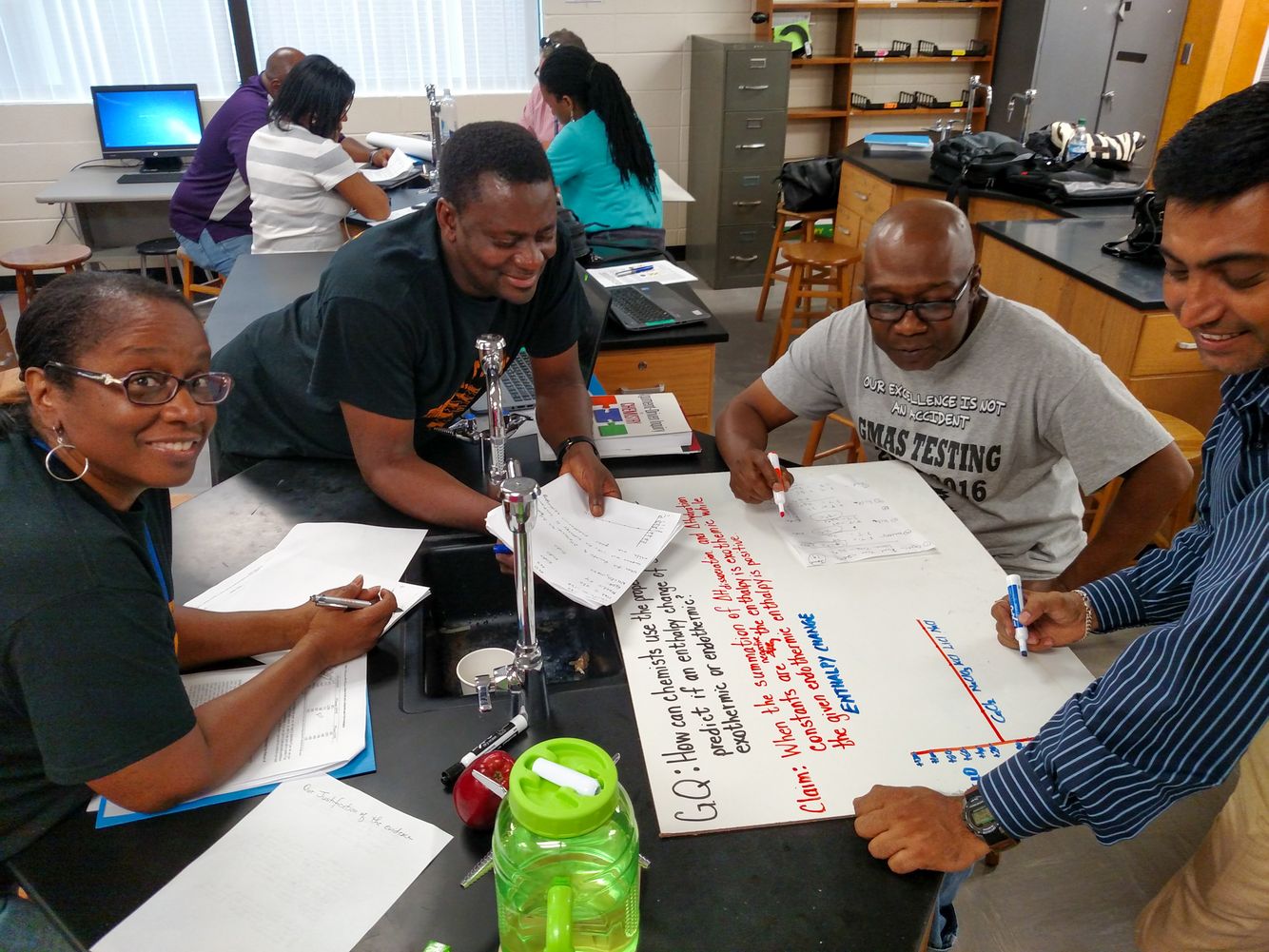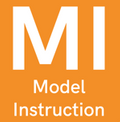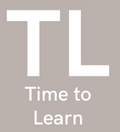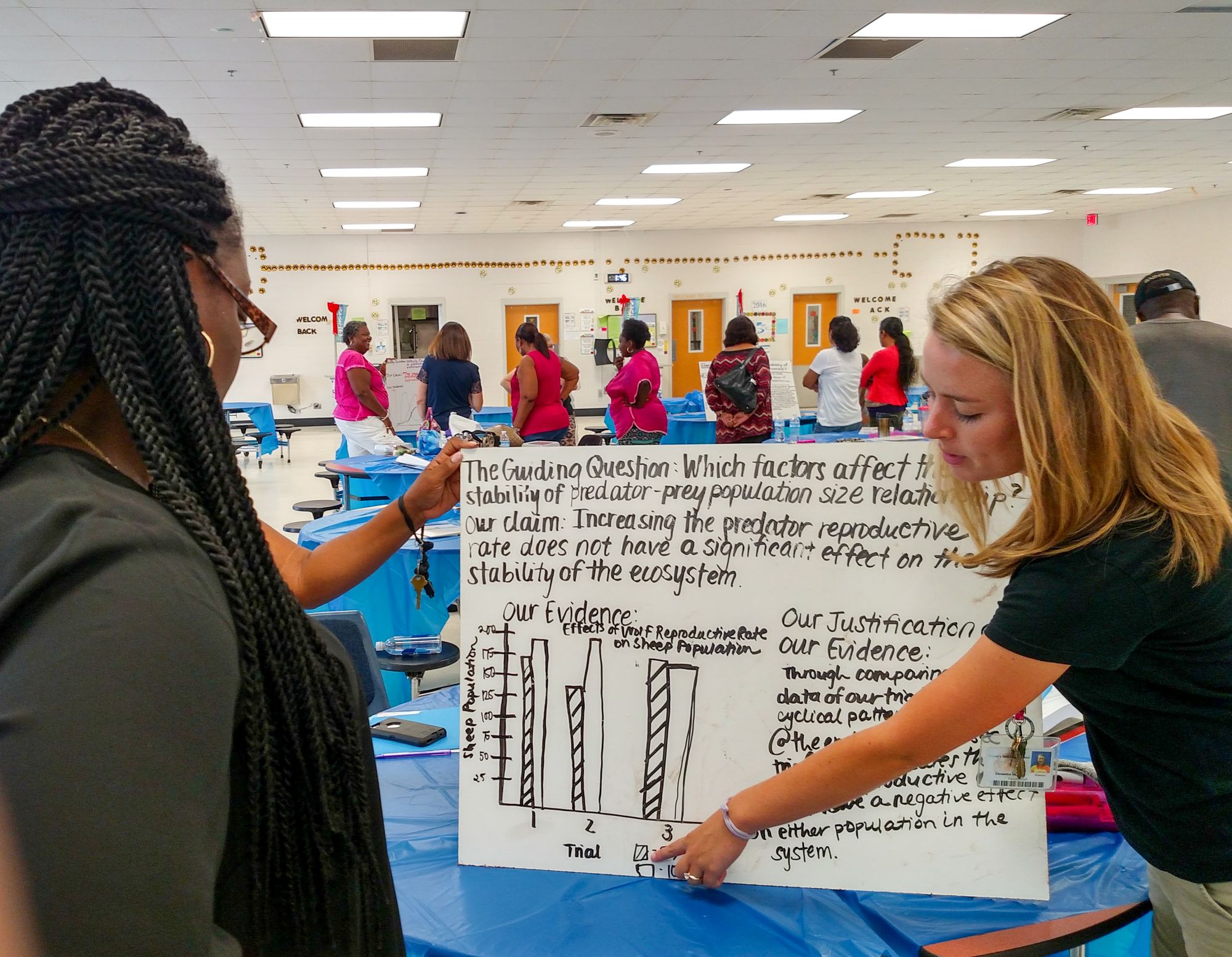
Key Features of our Professional Learning Experiences
Our professional learning experiences focus on the use of high-quality instructional materials as a way to make learning experiences more meaningful, rigorous, and equitable.
We believe that professional learning experiences that focus on the use of high-quality instructional materials are most meaningful and transformative when these experiences include ten key features. These features, which are listed below, serve as the foundation of all the professional learning experiences that we create and provide for teachers.

High-quality instructional materials
Students need repeated opportunities to use the core ideas and practices of a discipline to figure out how the world works or design solutions to problems. Instead of developing their own lesson plans, teachers receive ADI instructional materials that they can use to support ongoing changes in student thinking.

Model what instruction can look like
Teachers experience an ADI lesson just like students do, so they have a chance to see what makes it different. Taking on the student role during a lesson provides teachers with hands-on experience and concrete insights into how they can support productive interactions between students.

Provide time for teaching rehearsals
Teachers learn by doing. Therefore, they need opportunities to practice using ADI instructional materials before they are expected to use them in their own classrooms. Teaching rehearsals build teachers' understanding and trust in the design of the approach. They also build confidence.

Make it content specific
Teachers are grouped by subject and grade, so they have opportunities to make sense of the new instructional materials together. When teachers who teach the same subject learn together, they can leverage their expertise and learn more about the core ideas and practices they are expected to teach.

Keep equity front and center
When equity is a focus of instruction, teachers strive to find ways to remove the existing structural barriers that prevent some students from having access to a meaningful and rigorous learning experience. They also learn to create more inclusive classrooms.

Encourage reflection early and often
Teachers reflect on their previous experiences and how those differ from this new type of teaching. Individually, and in small groups, teachers consider and articulate their strengths and weaknesses in light of the new materials and their aspirations for students.

Provide teachers with feedback
Feedback comes from a variety of perspectives. When a professional learning specialist, peer, or coach observes a lesson and raises questions, their ideas create a foundation for conversations about goals for improved teacher practice and use of the instructional materials.

Address potential problems of practice
Teachers need opportunities to think about potential challenges that may arise when they use new instructional materials. Once these challenges are identified, teachers can develop a shared plan for addressing them. Teachers can then put these plans into action as they use the new instructional materials.

Examine student thinking
Student thinking is made visible when they write, talk, and draw as they attempt to make sense of phenomena. Teachers can learn a great deal about how students think and potential ways to support ongoing changes in student thinking when they collect and examine examples of student work.

Provide adequate time to learn
Learning to teach in new ways is complicated and takes time. Teachers need enough time to make sense of new ideas in light of what they already know and do inside the classroom. They also need opportunities to try out new instructional materials, make mistakes, and refine what they do.

Interested in learning more?
Set up a meeting with one of our program specialists to learn more about how you can use Argument-Driven Inquiry to make science, mathematics, or engineering education in your district or school more meaningful, rigorous, and equitable for all.
Connect with a team member View the Professional Learning Catalog
